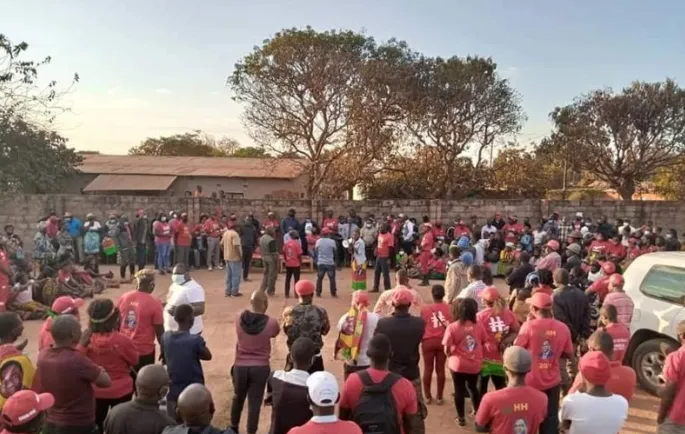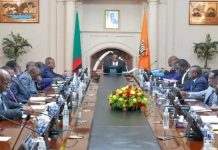Africa-Press – Zambia. By Dr C Ngoma , Why do people turn to drugs, whether alcohol or cocaine, marijuana or nicotine? The answer is simple, they want to feel good. One who is high on drugs can feel good even if they are homeless, even if their life is in a mess and their marriage is in a shambles. One can feel good if high on drugs even if they have no food on the table. Once one is high on drugs, the neurotransmitters in their brain changes their perception of reality and they will not believe you, no matter what facts you present to them. Brain scientists tell us that the feel good factor does not just come from drugs. It comes from many other things in life and it appears as though our brains are naturally endowed with this capability, even before old Noah discovered alcohol from grape juice.
There is no doubt at all that on paper Zambia is in dire straits. The times are out of joint and we have come to a pretty pass as a nation. However, it is not the first time and we have been here before. We have a history of suffering from political trypanosomiasis (sleeping sickness) in Zambia. This is very much like being on sedative hypnotics. For 27 years we sang the praises of one man while the economy tanked and there were human rights abuses under The Preservation of Public security Act. That we did love KK when he was President and even after, it is true, but eventually Zambians woke up albeit very late. We felt good about KK. Change only came when people loved Zambia more than they loved KK and waking up from that malaise they told the dear man to move to multi-party democracy.
There has been much study into how people vote and what their motivations are. In general, people who are avowed members of a party are most likely to vote for that party unless something really dramatic happens such that they feel that they are alienated from the party they once acknowledged. This happened in 2020 in the USA Republican Party. In the United Kingdom, the Jeremy Corbin Labour Party had more members on its roll than any other party, but they performed miserably at the last election. It becomes clear then that election results are determined by those who do not belong to a political party but vote.
When the UPND and PF were in alliance against the MMD, Hakainde Hichilema and Michael Sata spoke at one press meeting. HH gave a sanitised and surgical assessment of the state of the economy and why the MMD must go. It was full of facts but elicited no response from the audience. Sata opened his address with, ‘You have heard economics, now let me tell you politics.’ With these words, the audience went agog! Whatever Sata said after that was nectar to the audience. When the alliance failed, Sata emerged winner. There was something about Sata that made one feel a warmth inside, even when he was dishing out expletives!
The Zambian economy was in a much better shape than it had ever been for 20 years when Rupiah Banda was President, in spite of the 2008 global financial crash! Nonetheless, RB’s government failed to win in 2011. Economics on paper is not the same as household-nomics. There is a thing called ‘the feel-good factor.’ I fear that this is a most neglected component to why people vote the way they do. It is very difficult to measure but in a small way it starts with how people feel about a person. How much giggling goes on in the audience as one is speaking?
How did people feel when they listened to HH? How do people feel when they see President Edgar Lungu? Do they feel like they should shout, ‘Lungu mastigo?’ Do the grassroots feel angry? When one feels good, they ignore reality. They will not even bother to turn up to vote. We may have the worst economy in the history of the country for a long time, but do people feel bad? Will Zambians love country more and do good by the country in less than a month’s time? Judge for yourselves because that is what may determine the result if there is a free and fair election.







